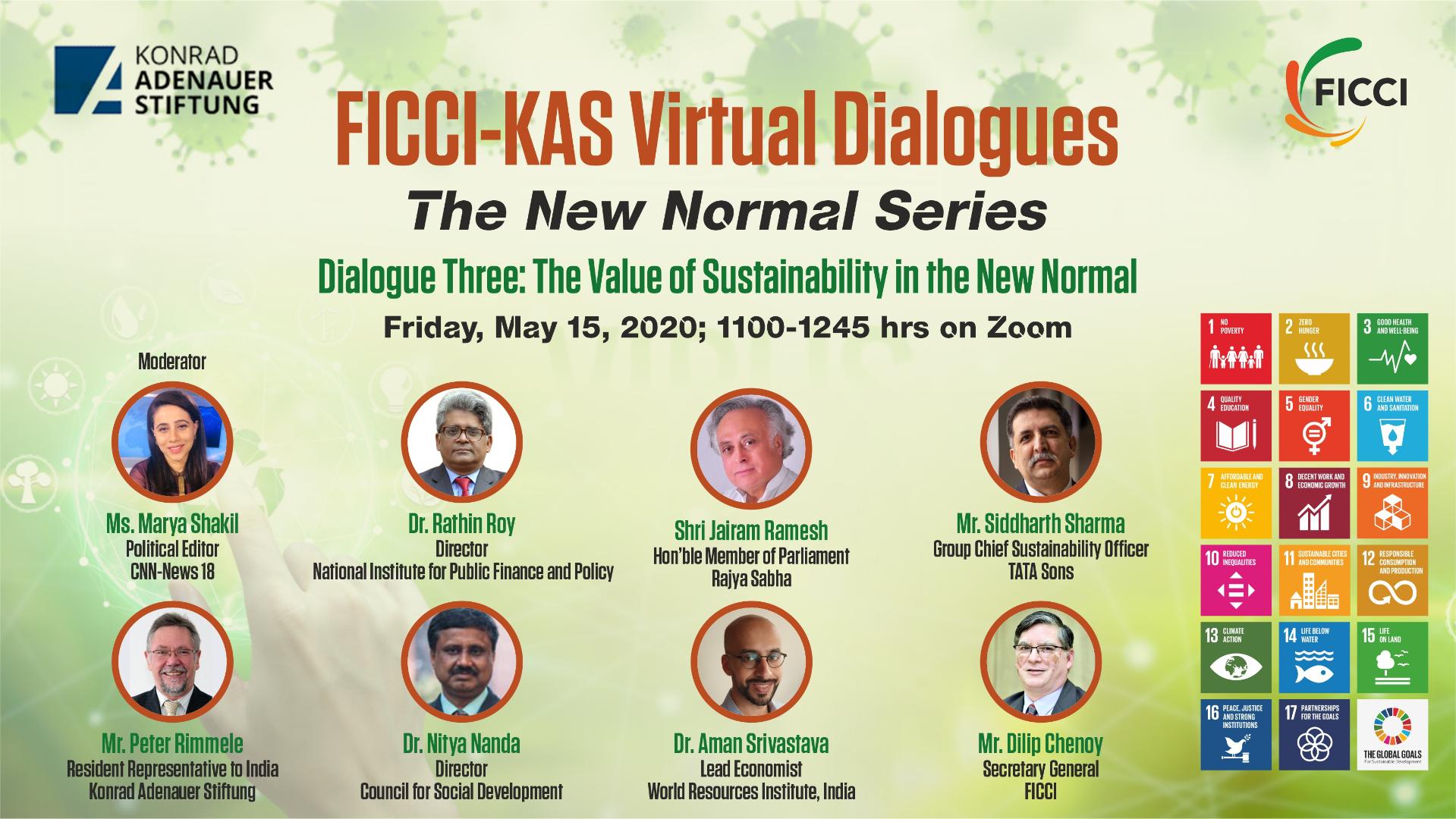As the COVID-19 pandemic has brought to a glaring focus, several weaknesses in global system including pockets of poverty, weak healthcare systems, gaps in education and most of all, a lack of globally cohesive approach, the time for a Litmus test of global vision encapsulated in the SDGs 2030 has arrived.
The FICCI-KAS third Virtual Dialogue in the 'New Normal Series', “The Value of Sustainability in the New Normal” aimed to analyse how the future of sustainability appears in a world affected by the global pandemic.
The discussion witnessed the presence of eminent personalities from media, government, international organisation and academia as panellists.
Key Takeaways:
-There is a need for advocating for environmental protection laws and for adhering to sustainable practices.
-The focus should be on changing patterns of production and consumption and the need to change the society. The prime aspect is to change social behaviour which cannot be done by coercive power but through realisation and experiences one is going through in these times of crisis.
-One cannot follow the economic path based on high consumption and needs to shift to sustainable consumption and making sustainable choices in agriculture, industry, transport. The economic revival is important and so is the revival package, but the focus should also be on social and environmental revival packages.
-Societal behaviour does need to change and this crisis has put to test the way the people are treating other people. There is a need to ensure that people do start caring and this can happen by increasing financial security or focusing on local neighbourhoods or restructuring of perceptions of class-based society.
-One cannot deal with a crisis by mobilising funds or resources from people. It can be done in times of charity or disasters (relief funds).
-The government is the prime mover of socio-economic development. In terms of CSR, corporates are not a substitute for government investment in socio-economic development. At best, they can be partners in national development. This could be done by putting greater thought into the CSR processes by the corporates wherein areas of focus and national priorities are kept in mind. There is great convergence between the two and it can lead to an alignment between corporate thinking and welfare of the nation. It needs careful planning and execution.
-In a time like this, CSR might be haphazard and uncoordinated. The need of the hour is to direct the CSR money from the local places where the industries operate towards the places where it is most needed. Enforcing and accountability in terms of CSR funds and corporate tax rates is crucial. The focus should be on long term investments whether in healthcare or education and support from the government in terms of financial and monetary support and innovative leveraging of that support.
-Civil society can help to reach out to people and build social and environmental consciousness and it is important to help NGOs in that aspect. There is a need to look at the work being done by the government, CSOs and the private sector and the coordination between them is important to deal with this crisis.



